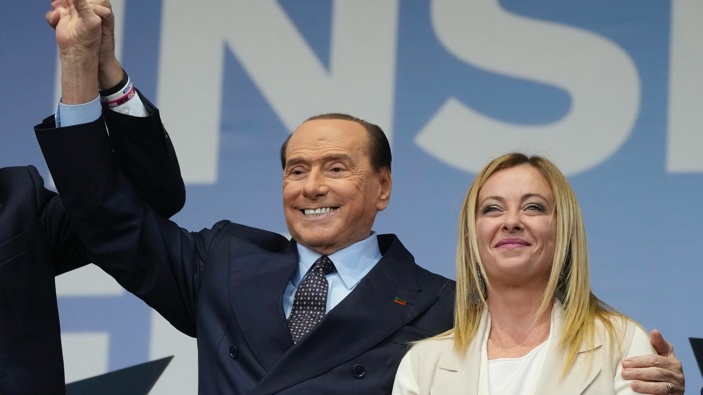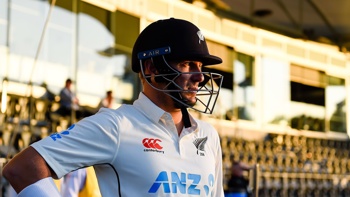Follow
the podcast on

Formal consultations began on Thursday aimed at giving Italy a new government within days, but feuding between right-wing campaign allies over Russia and Ukraine risks undermining the prospective governing coalition's pro-NATO, pro-Europe pledges.
President Sergio Mattarella invited party leaders for talks at the Quirinal Palace before he gives a formal mandate to a premier-designate following the country's Sept. 25 election.
Giorgia Meloni, whose Brothers of Italy party, at 26%, was the largest single vote-getter, is eager to become both Italy's first far-right leader to head a government since the end of World War and its first woman in the premiership.
But her jubilation over her party's election victory has been tempered by troublesome words professing empathy for Russian President Vladimir Putin from Silvio Berlusconi, the former premier whose center-right Forza Italia's party has seen its popularity sag.
Mattarella will give the mandate to try to forge a government in the hours or days after his meeting Friday bringing together Meloni, Berlusconi and the other major figure on Italy's political right, League leader Matteo Salvini, who has questioned the wisdom of Western sanctions against Russia.
Mattarella has also insisted that Italy must stand united with European Union partners in the West's stance against Russia in its war against Ukraine.
To ensure herself a commanding majority in Parliament, and bring her party with its neo-fascist roots to power, Meloni needs to rule in coalition with the forces of Berlusconi and Salvini.
On the eve of the Quirinal consultations, Meloni dealt Berlusconi an ultimatum over foreign policy in the government she intends to lead.
“Whoever isn’t in agreement with this cornerstone will not be able to be part of the government, even if it means no government,” she said in a statement issued by her party, whose election platform stressed staunch support for Ukraine in its armed defense of its sovereignty.
Last week, Berlusconi, clearly chafing that he no longer dominates Italy's right, left in plain view in the Senate notes he had scribbled deriding Meloni as presumptuous, bossy and arrogant.
- How a party of neo-fascist roots won big in Italy
- Will Italy swing to the right? Voters turn out for general election
Throughout the election campaign, Berlusconi, who, when he was premier, socialized in Italy and Russia with Putin, insisted he was an unwavering champion of NATO and the United States.
But audio tapes of Berlusconi's expressing sympathy for Putin that emerged this week seemed to reveal otherwise and risked sabotaging any coalition unity.
Berlusconi, holding court with his lawmakers, sought to justify Putin’s decision to send troops into Ukraine nearly eight months ago, saying the Russian leader had aimed for a two-week incursion with the goal of installing a “decent, sensible” government in Ukraine’s capital, Kyiv.
Berlusconi also was heard writing off Ukrainian President Volodymr Zelenskyy, saying “let’s forget” him.
In a separate snippet, Berlusconi boasted that Putin sent him bottles of vodka for his 86th birthday on Sept. 29 and that he sent bottles of Italian wine to the Russian.
In an interview published Thursday in Italy's Corriere della Sera newspaper, Berlusconi accused the media of “distorted and frankly ridiculous interpretations on my thought” on Russia and Ukraine.
He denied trying to justify Russia's invasion of its neighbor.
“On the contrary, I reiterate, for the latest, and I hope, last time, that my position coincides absolutely with that of the Italian government, of the European Union, of the (NATO) Atlantic Alliance, of our American allies, and it's a clear-cut condemnation of the military attack against a free and sovereign State,” the newspaper quoted the former premier as saying.
Berlusconi has pushed for a top aide, former European Parliament President Antonio Tajani, to become the foreign minister in a Meloni government.
Arriving on Thursday for a summit in Brussels of the European People's Party, a conservative political grouping that includes Forza Italia, Tajani told reporters that both he and Berlusconi were firmly in favor of NATO and the EU, and “against the unacceptable invasion of Ukraine by Russia.”
Italy's Constitution empowers Mattarella with vetoing, if need be, a premier's Cabinet picks.
Former Premier Giuseppe Conte told reporters after he led his populist 5-Star Movement in talks with Mattarella that he raised “strong perplexities” at the prospect of a Forza Italia lawmaker becoming foreign minister.
Another ex-premier, center-left leader Enrico Letta, was scathing about Berlusconi’s gushing sympathy for Putin. He said he told Mattarella that Berlusconi’s words dealt “a great wound to Italy’s reputation.” He noted with alarm that what appeared to be applause from Berlusconi lawmakers could be heard on the audiotape.
The coalition partners poised to rule Italy “have very different friendships,” Democratic Party chief Letta said of Meloni’s anti-Putin stance and Berlusconi’s coziness with the Russian leader.
In Brussels, outgoing Italian Premier Mario Draghi sought to dispel any doubts about his nation’s priorities in Europe.
“The common market, monetary union, the Atlantic alliances are the best way to reinforce our weight in the world, grow our economy in a sustainable way, guarantee our security," Draghi told diplomats representing Italy at the EU, NATO and in Belgium. He was attending an EU summit focused on energy costs.
Draghi also stressed safeguarding civil rights, especially for minorities, and defending the “democratic sovereignty of states,″ the latter a clear reference to Ukraine.
Both the 5-Star Movement and the center-left Democratic Party, now the main opposition forces in Parliament, have expressed concern that a Meloni government would push for restrictions on abortion and LGBTQ rights.
- by Frances D'Emilio, AP
Take your Radio, Podcasts and Music with you









